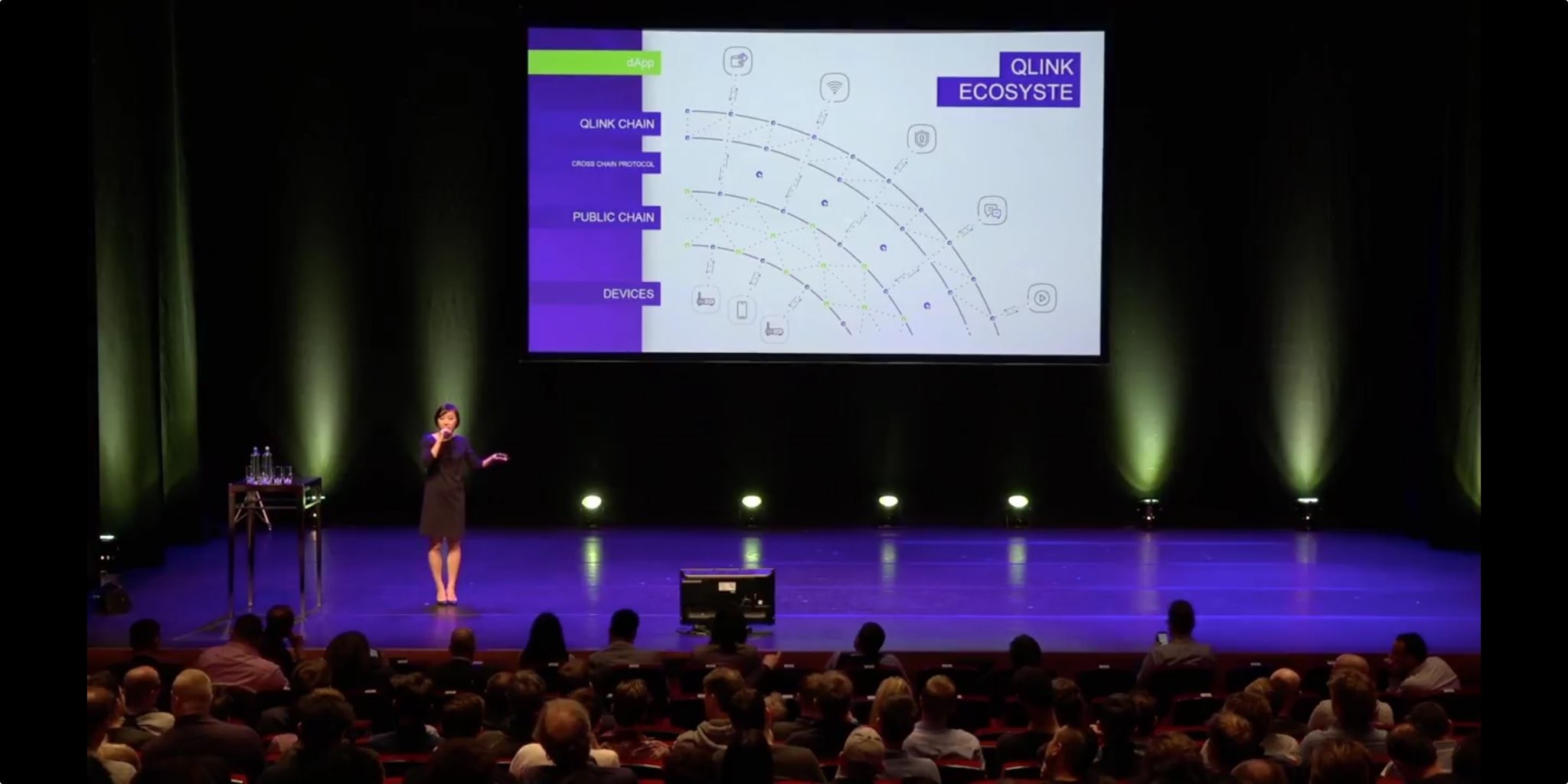Blockchain Builds the Infrastructure for The Future
It was a pleasure to participate in the NEO meetup in Amsterdam on April 14th, presenting on behalf of Qlink for over 700 attendees.
Blockchain technology entered into 2.0 era since 2017 with various types of projects launching and revolutionising different industries. In 2015, when I first learnt about the technology, the questions most frequently asked were, what is blockchain? Where does bitcoin’s value lie? Is Ethereum taking over Bitcoin? Will banks be eliminated? Currently, the questions transform to more practical perspectives, especially after learning from all the NEO projects during the meetup, for example decentralised exchange, stable coin, digital ID, operating system and games. Each project brought a vision to a specific field, including Qlink, tackling the mobile network industry.
Prof. Jason Potts, from RMIT (Royal Melbourne Institute of Technology) delivered a speech regarding the economic infrastructure evolution. He believes blockchain has the power of bringing the economic transformation.

We highly agree that distributed ledger is one of the critical components of the economy function. Modern civilization still remembers how double entry bookkeeping invented the market, and how digitalised spreadsheet improved the efficiency. The concept of distributed ledger can be interpreted as a tool of mapping and verifying agreed facts, which can be adopted in ownership verification during transactions and tradings to mention a few.
To simplify the process, a trustworthy ledger firstly requires assets registration, whether physical asset or digital asset, to mirror it into the ledger and gain a unique ID. Secondly, the ledger has to be honest, and agile. Centralised ledger system is messy, without a unified protocol to follow. Government, institutions, enterprises and all others participate in the registration and bookkeeping process, lacking interoperability at the same time, costing a fortune to build trust. Prof. Potts called it organic trust building, compared to blockchain which is computational trust and cost efficient.
.jpeg)
How does Qlink transform the network services economy?
The current network services are predominantly provided by a limited number of carriers, with many small providers working on side services, for example, SMS, VPN, CDN, Storage, and of course, hardware. However, the network ID management hasn’t been standardized, billing is another bottleneck for carriers to lower the cost. In addition, network has never been more than a pipe for the cool services and applications built on top of it, which can be easily solved if the services and applications can have a blockchain based ID where the transactions can be recorded.
.jpeg)
Qlink introduced dual chain development for network transmissions, providing network-as-a-service for all participants.
We utilise NEO public chain for registering all network assets and thanks to this taking full advantage of the smart economy - digital identity, digital assets. Separately, Qlink public chain will record network asset transactions and execute smart contracts. This public chain is targeted to be completed by the end of 2018. By integrating blockchain into network industry, users network experience has enormous potential to flourish further.
Taking Qlink’s first dApp WinQ for example, it has enabled WiFi based chatting function, as well as individual-run VPN services. In the future, there will be an immense number of network associated applications available supported by Qlink protocols, because the ecosystem will be revamped from the fundamental infrastructure. I, together with team members, look forward to the future network economy.
Borrowing Prof. Potts metaphor during the presentation: the blockchain technology as an infrastructure is laying its foundation now, digging the hole in the ground, soon we will see skyscrapers built. Qlink is honored to join the construction team and take care of the network industry.
To add on, when being asked what do you think the biggest revolution brought by Blockchain technology. I am happy to say that it definitely helped small businesses to get in an ecosystem and provide services to the international customers as the technology saved them great cost to build trust globally.
.jpeg)
Congratulations @txdzhang! You have completed some achievement on Steemit and have been rewarded with new badge(s) :
Click on any badge to view your own Board of Honor on SteemitBoard.
For more information about SteemitBoard, click here
If you no longer want to receive notifications, reply to this comment with the word
STOP